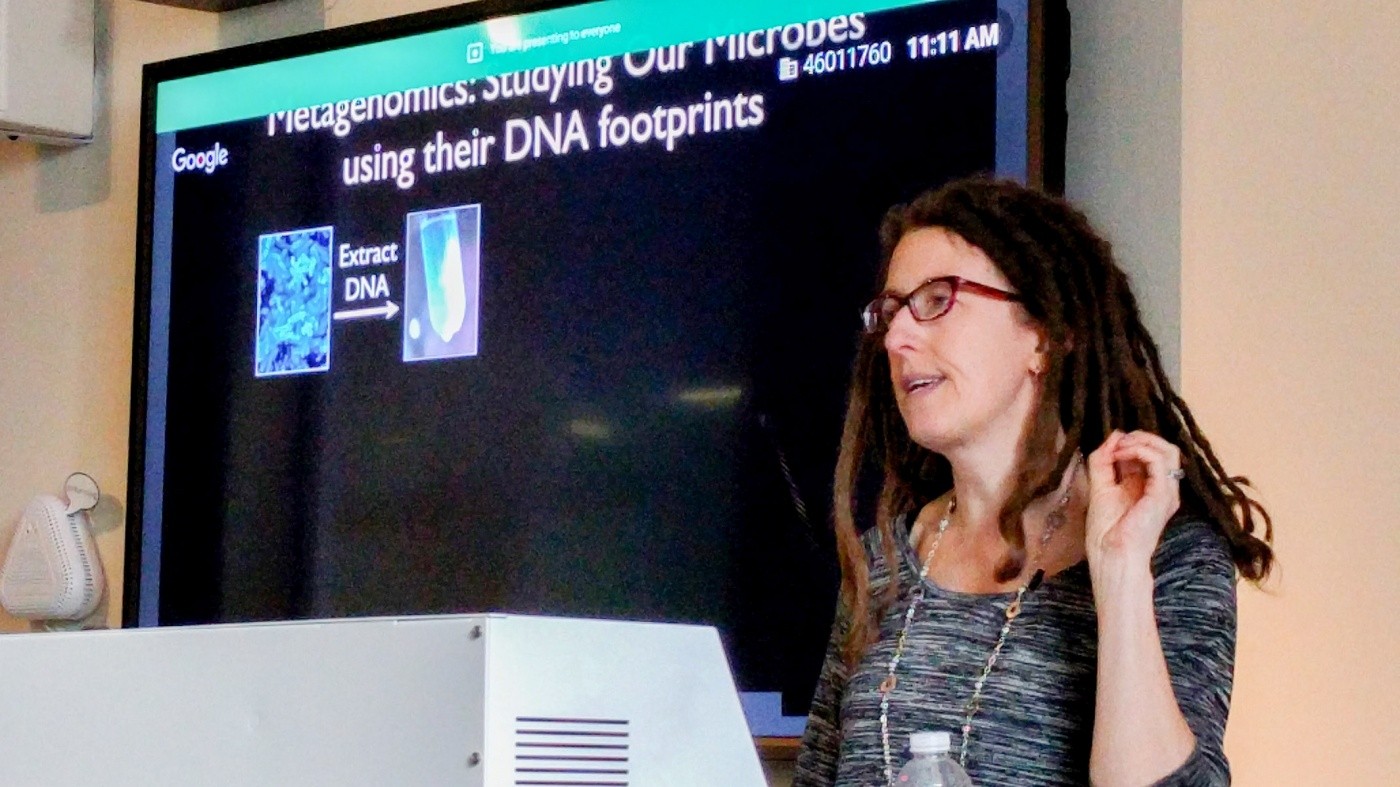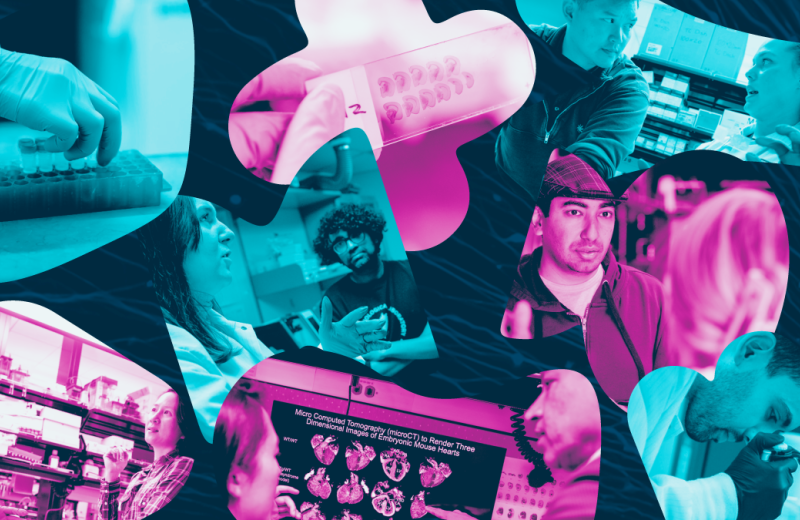Gladstone NOW: The Campaign Join Us on the Journey✕

Katherine Pollard shares science on big data and high-performance computing with an audience at Google as part of the Gladstone Open Classroom Talks series.
On January 14, 2016, Katherine Pollard, PhD, a senior investigator at the Gladstone Institutes, visited the Google campus, where she discussed how her research uses big data and high-performance computing to decode complex interactions between human and microbial cells.
“It is a privilege to talk about our work on big data and the microbiome at Google,” said Pollard. “Google is the epicenter of data mining.”
Her visit was the second in a series of Open Classroom Talks facilitated by the Gladstone outreach team. These talks have been designed by Paul Li, a science education specialist at Gladstone, to send scientists out to a variety of locations in the Bay Area to share Gladstone’s latest research and connect Gladstone scientists to academic and non-academic venues and communities.
Pollard’s visit to Google offers the unique opportunity to bridge a palpable gap felt between the worlds of science and the tech industry. While the Bay Area is home to a variety of niche communities, its tech community is booming among young adults, particularly millennials between the ages of 18 and 33, who may not find scientific research as inviting as other disciplines. Gladstone President Sandy Williams, MD, acknowledged science's lack of appeal when compared with other topics.
“It’s unfortunate, in my opinion, that science ranks low on the list of preferred dinner table conversations, even among gatherings of highly educated and intellectually engaged people who are not professional scientists," said Williams.
For many years, Gladstone has fostered awareness of biomedical research beyond its walls and into the wider Bay Area community. Since 2008, for example, the outreach team at Gladstone has been visiting high school classrooms in San Francisco to share Gladstone’s research and inspire young minds to consider careers in science. Now that the audience is broadening to include larger professional organizations and tech companies like Google, Gladstone is opening the door to a myriad of exciting opportunities to share research on a wider scale and to partner with these newer innovative industries.
“By helping scientists better communicate their research, we can provide a platform and worthwhile space where the science can be better exposed,” Li explained. “We believe that sharing our science with the general public is the next step in our education efforts.”
Gladstone’s Scientific Highlights of 2025
Gladstone’s Scientific Highlights of 2025
From fundamental insights to translational advances, here’s how Gladstone researchers moved science forward in 2025.
Gladstone Experts Alzheimer’s Disease Autoimmune Diseases COVID-19 Neurological Disease Genomic Immunology Cardiovascular Disease Data Science and Biotechnology Infectious Disease Conklin LabSix Gladstone Scientists Named Among World’s Most Highly Cited Researchers
Six Gladstone Scientists Named Among World’s Most Highly Cited Researchers
The featured scientists include global leaders in gene editing, data science, and immunology.
Awards News Release Corces Lab Doudna Lab Marson Lab Pollard Lab Ye LabScience in Seconds | Researchers Pinpoint Key Gene Behind Heart Defects in Down Syndrome
Science in Seconds | Researchers Pinpoint Key Gene Behind Heart Defects in Down Syndrome
In this video, Gladstone scientists share how they used stem cells, gene editing, and AI to identify a gene driving heart defects in Down syndrome—and how reducing its levels in mice restored normal heart development, offering hope for future treatments
Gladstone Experts Cardiovascular Disease Data Science and Biotechnology Pollard Lab Srivastava Lab AI Big Data CRISPR/Gene Editing Human Genetics Stem Cells/iPSCs



